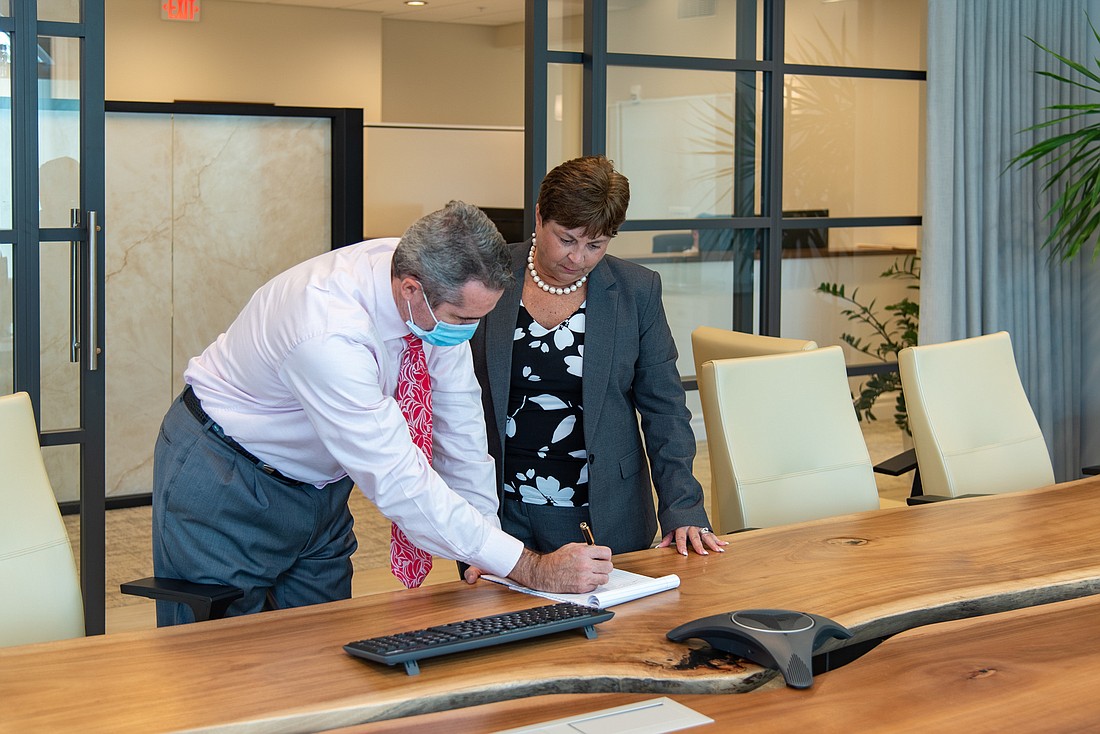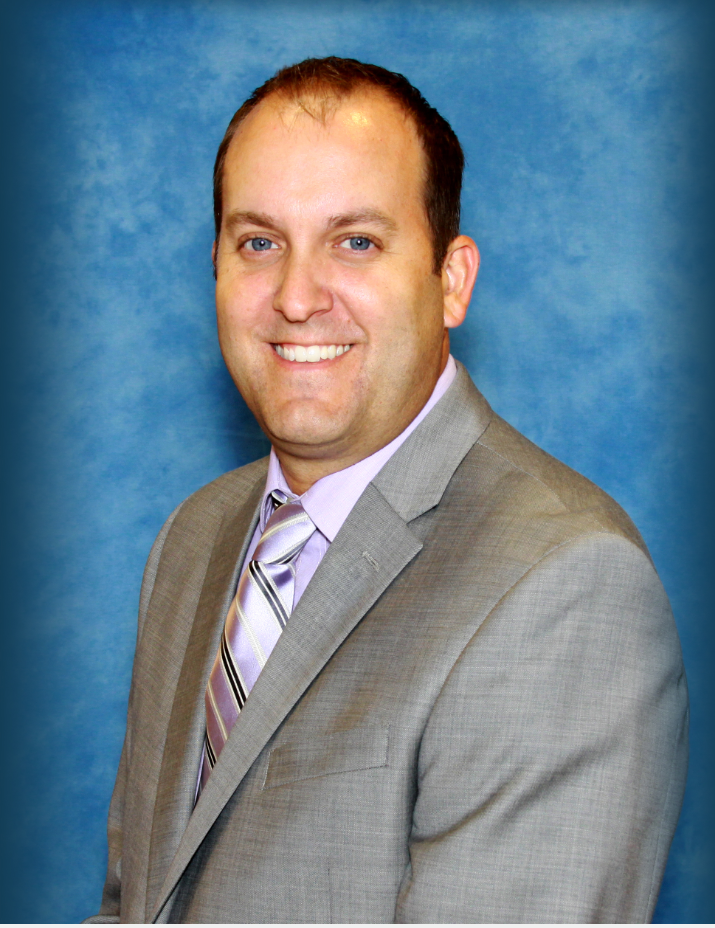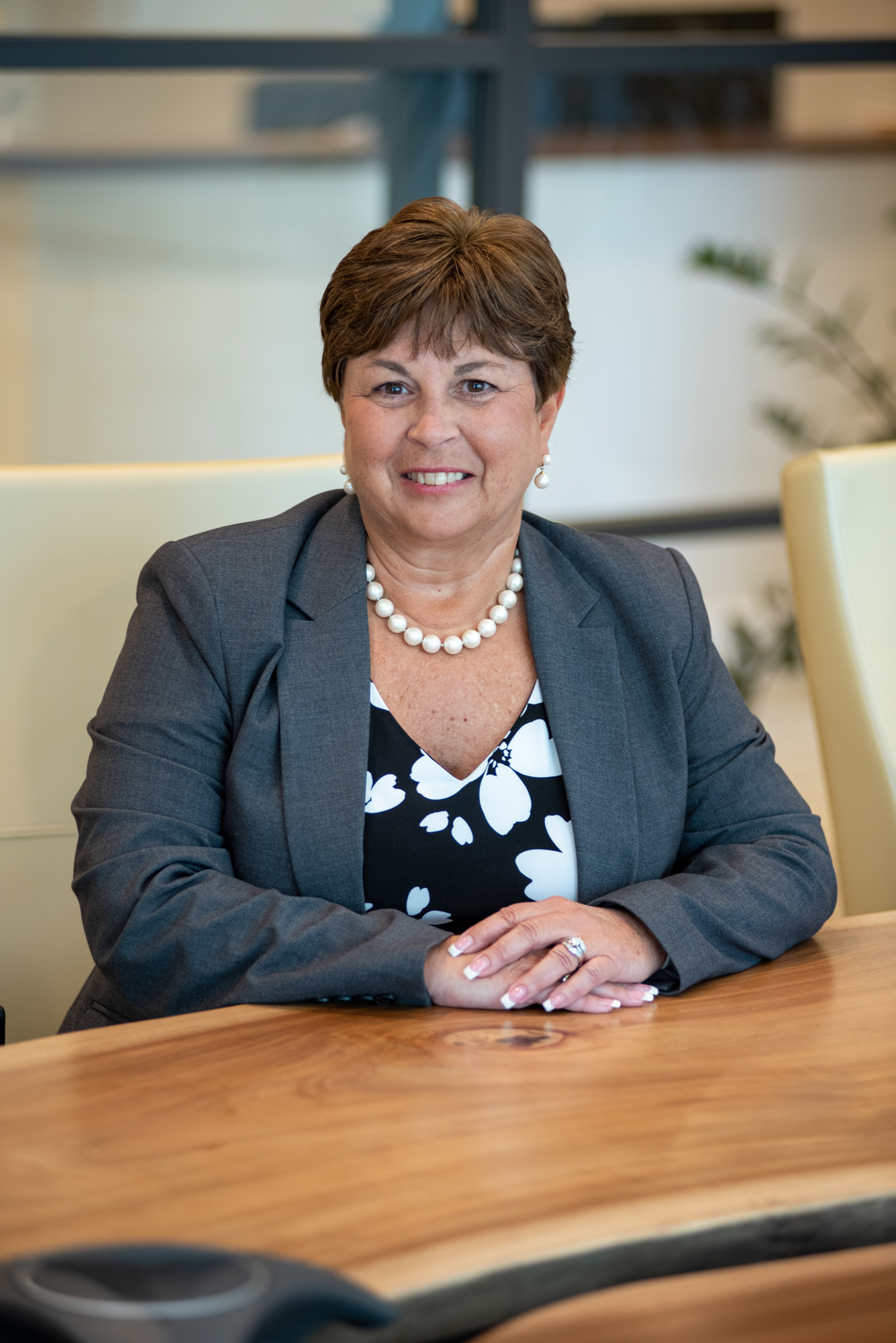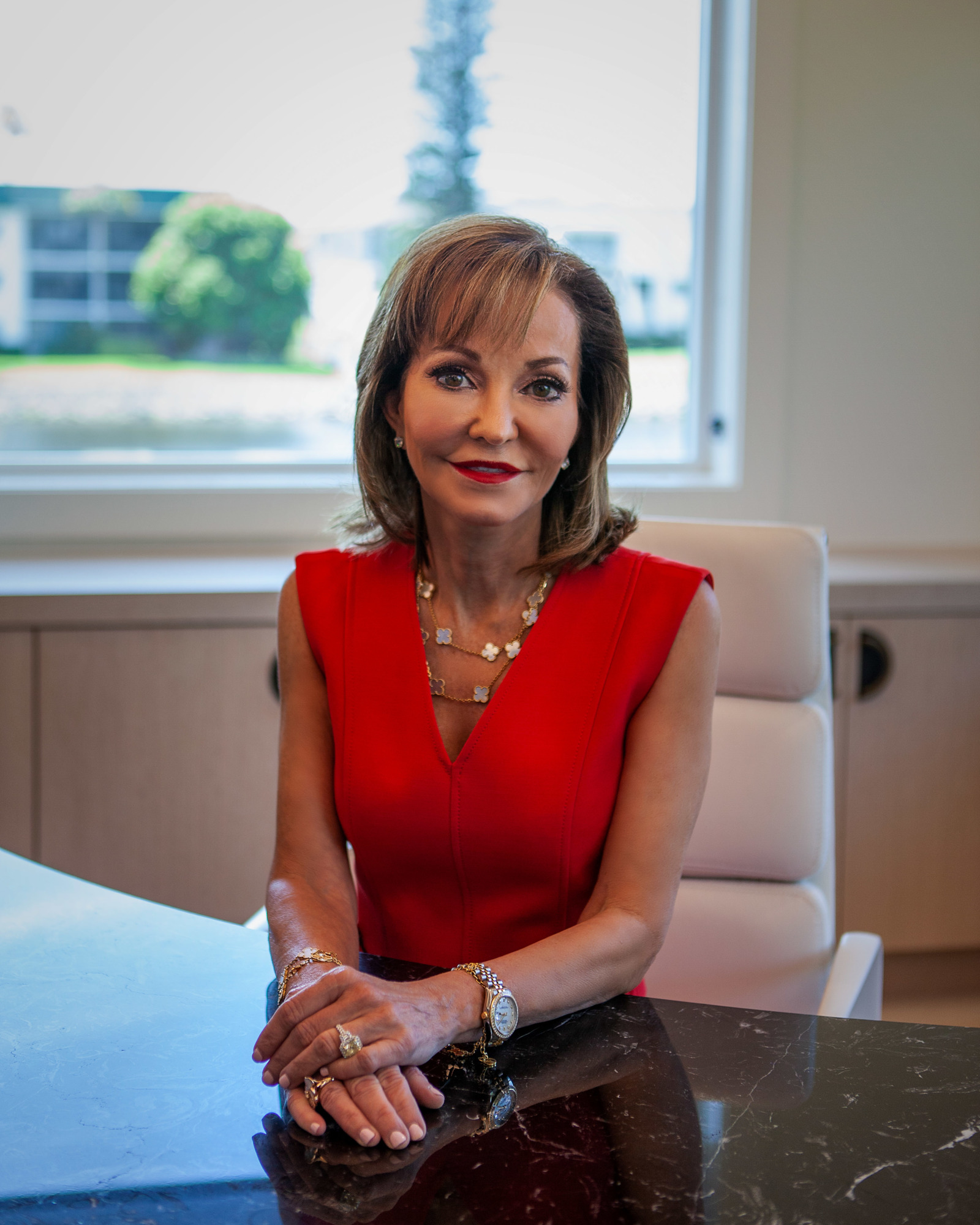- December 25, 2024
-
-
Loading

Loading

The question of forcing employees to get a COVID-19 vaccine is top of mind for many businesses in the region. But entities from a hospital to a wealth management firm to a radio station conglomerate have already answered the question: the answer is yes.
At one of those entities, Naples-based NCH Healthcare System, requiring workers to get a vaccine is nothing new. “We took an oath to do no harm when we graduated,” says Jon Kling, COO of the Naples community health organization, which has nearly 5,000 employees. “Vaccines have always been a requirement.”

Kling puts the vaccine in the context of what NCH has dealt with during the rise of the delta variant. At the initial height of the pandemic nationally, the health care system’s highest number of COVID-19 positive patients was 144. That was June 2020. As of late August, there were 220 COVID-19 positive patients at NCH, of which 209 are unvaccinated. “It’s a sobering statistic,” he says.
Of 48 patients in the ICU, only one was fully vaccinated. And the 36 patients on ventilators were all unvaccinated. With 715 beds, the hospital is having to take critical care patients outside the critical care walls. “This pain and suffering is on a level I’ve never seen before,” says Kling, noting he’s been a critical care nurse and worked in the burn care unit. The hospital has also had to restrict elective surgeries to make room for COVID-19 positive patients.
“We are at capacity,” he adds.
With this current surge in cases, the NCH physicians and leadership team came together to discuss what to do. Worried about seeing even one of their employees becoming ill, the team decided to come up with a vaccine policy. However, since vaccines are a normal requirement for health care officials, Kling calls it a work condition.
'Our job is to lead with science, not political science.' John Kling, NCH Healthcare System
The work condition was reviewed — a lot by a lot of people — before it was made policy. The health care system checked that it stayed inline with OSHA’s Fair Labor Practice Law. Then it was brought before the physicians review board and NCH board of directors before being presented to human resources.
The legal team looked over it one last time. Then the new work condition went public.
As part of the process, Dr. Gregory Poland, an infectious diseases expert and head of Mayo Clinic's Vaccine Research Group, was brought in to lead a town hall to answer questions regarding the vaccine. This was an important step because Kling says anyone wanting to put a policy in place has to be open with employees. “The number one thing is to listen to employees and have the science and facts ready,” he says.
The health care system has been careful to lead by example and provide area businesses with scientific data.“We fully understand the polarizing aspect,” he says.
NCH’s work condition includes exemptions for religious or medical purposes. But those who are exempt must wear an N95 mask, which Kling says isn’t anything new either.
If employees haven’t been vaccinated by Sept. 16, then they will no longer be employed by NCH. And Kling fully expects to lay off some staff members.
But the work condition also had an opposite effect Kling wasn’t expecting. The system recently hired 280 employees. Kling says while some are leaving because of the work condition, others are applying for jobs because of it.
When the policy was rolled out, Kling says the majority of the organization's 5,000 or so employees were happy to see it. The health care system did see a peaceful protest from a community group, which Kling says was hard to comprehend. “But they have their opinions,” he says. “Our job is to lead with science, not political science.”
Donna Guinta, COO and chief compliance officer at Venice-based FourThought Private Wealth, and her team have been consistently watching COVID-19 numbers every day since last year. Additionally, Sarasota Memorial Health Care System (SMH) has proved to be a resource for FourThought throughout the past year and a half.
Each week the team provides employees an update on COVID-19, including data coming straight from SMH. After noticing an uptick in cases in the area, the FourThought leadership team took a vote to implement a vaccine policy. In addition to protecting their employees, the company also sees clients on a daily basis.

Aside from two employees with medical exemptions, every employee is expected to become vaccinated or follow specific rules like wearing a mask and taking a weekly COVID-19 test. “We’re trying to protect our folks,” says Guinta.
The policy requires vaccinated employees to show leadership a vaccination card. Then they can come into work as usual and aren’t required to wear a mask.
Unvaccinated employees have a few requirements, including:
• Must wear a mask in the office – when within 6 feet of another person or when walking around the office.
• Must alert any clients they meet with that they aren’t vaccinated.
• Must wipe down conference rooms or other areas after use.
• Must be COVID-19 tested once a week, on Thursday, to have the results to Guinta by Monday.
So far, every employee except two have either become fully vaccinated or received the first of a two-shot vaccine. That’s been one of the positives of the policy, says Guinta. There were two employees hesitant to get the vaccine, but with the policy and information supplied by the company, eventually made moves to become vaccinated.
“We have employees who are thankful we put this policy in place,” says Guinta, noting they’ve also been thanked by clients. “It’s not just affecting our firm. It’s affecting the community.”

Beasley Media Group in Naples, meanwhile, recently announced its giving employees until Nov. 1 to provide proof of vaccination. The news comes on the heels of founder George Beasley’s death.
That was the biggest push for the company’s policy. Beasley died June 2, 2021 from COVID-19 complications. Caroline Beasley, his daughter and CEO of Beasley Media Group, says it was a breakthrough case as he was vaccinated.
“I know firsthand the impact this virus has,” she says. “This virus is not going to go away.”
With the Delta variant on the rise, the radio station company, which owns 62 radio properties in large and medium markets nationwide, decided a vaccine policy was necessary. The policy includes exemptions for religious or medical reasons only, but those reasons have to be submitted and approved by Nov. 1.
After Nov. 1, unvaccinated employees will be on unpaid leave. The company, with $206.1 million in revenue in 2020, employs some 1,000 people, of which Caroline Beasley says about 60% were supportive of the policy.
The firm had discussed the possibility of a vaccine policy since the first vaccine received temporary approval. The legal department has been involved since then as well.
Currently, the company is back in the office. While COVID-19 tests aren’t required, masks are as the company is following CDC guidance.
When the policy was in the beginning stages, the company sent out a survey for employees and Caroline Beasley spoke with market managers to gauge support for the policy.
Like Kling at NCH, she’s been careful to follow the science of the vaccine. “We want to provide a safe environment for our employees,” she says. “You have to do your research.”
She also says it was important to reach out to a local hospital to gather data and facts to support the policy.
“Naples Community Hospital has been a very valuable resource,” she says, noting two NCH officials visited a manager meeting for a Q&A session. “It was really helpful to employees to receive information from credible sources.”
With the information and data the media group received from NCH, Caroline says, “This is an unvaccinated pandemic.”